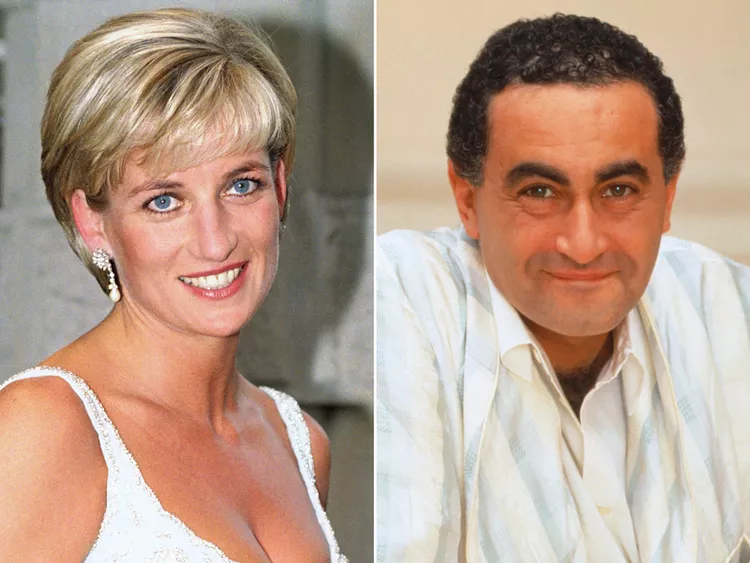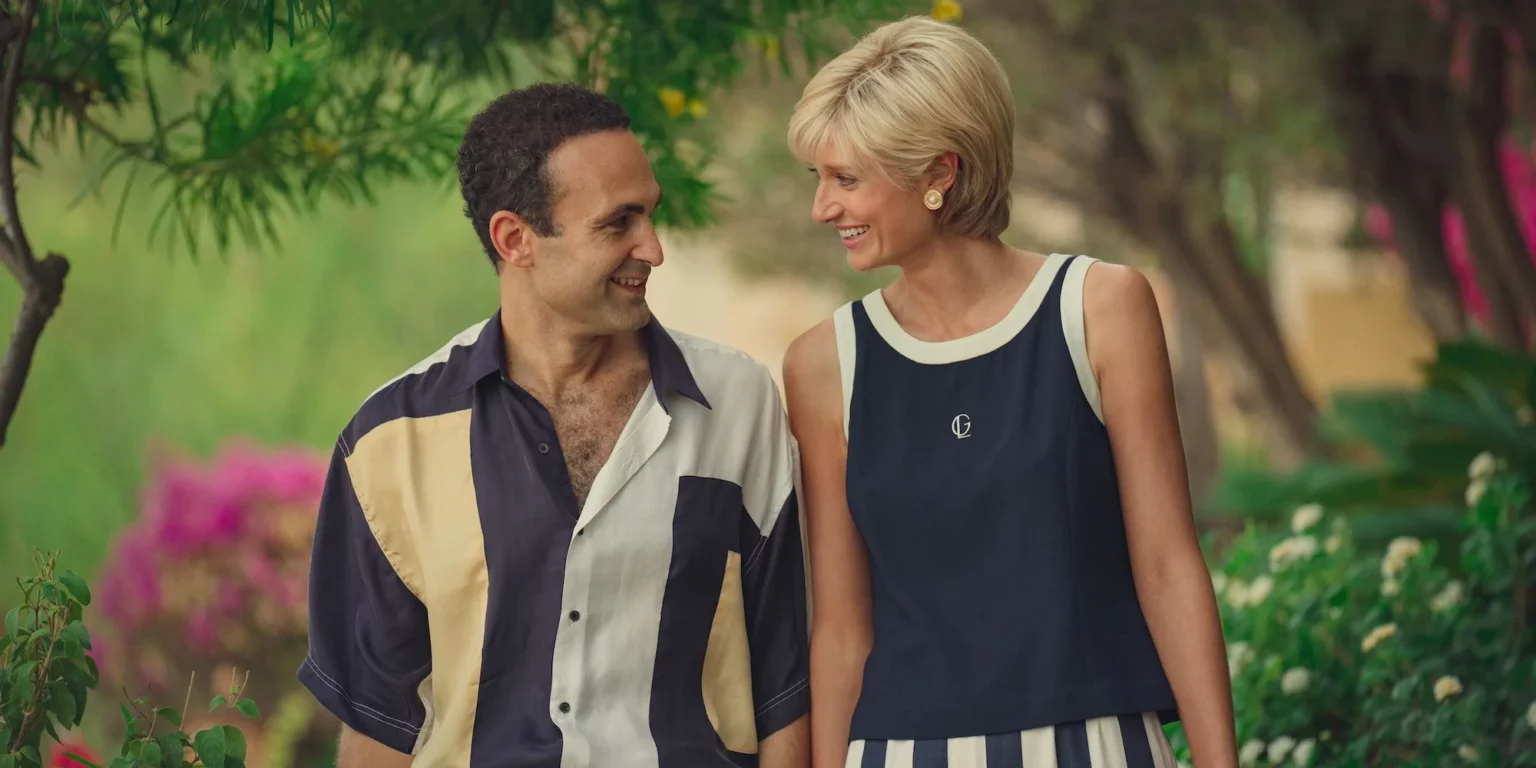In its latest season, the hit Netflix series, The Crown, has once again ignited controversy, this time for its portrayal of the romantic relationship between Princess Diana and Dodi Fayed. The unfolding drama suggests that the Egyptian businessman, Al-Fayed, played by Salim Dau, engineered his son’s connection with the late princess as a means to secure British citizenship.
The initial episodes of the season showcase Al-Fayed introducing Princess Diana, portrayed by Elizabeth Debicki, and Dodi, played by Khalid Abdalla, aboard his yacht in the Mediterranean. The plot thickens as Al-Fayed allegedly instructs a maid to keep him informed about whether Diana and Dodi are sharing a bed. Upon receiving confirmation, the story suggests that he then orders an Italian photographer to capture their private moments during an intimate embrace on the Jonikal yacht.

The depiction has stirred significant backlash, with critics accusing The Crown of taking creative liberties and distorting historical facts. The controversy intensifies as it touches upon the sensitive legacy of Princess Diana, whose life and relationships continue to captivate global audiences.
In response to the allegations, Michael Cole, Al-Fayed’s former spokesperson, vehemently refuted the claims. Speaking to Deadline, Cole stated, “He was delighted that his eldest son and his family’s dear friend Diana were together. But making two people fall in love with each other? That was beyond even his great talents.”
This controversy adds to the ongoing debate surrounding historical accuracy in dramatized portrayals of real-life events. As The Crown continues to push the boundaries of storytelling, it sparks discussions not only about the blurred lines between fiction and reality but also about the ethical responsibility of creators when depicting the lives of public figures. The public eagerly watches as the drama unfolds on-screen and as real-life figures’ legacies are interpreted through the lens of artistic interpretation.




